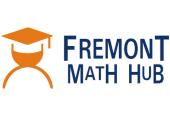Today’s education is shifting rapidly, and digital skills have become more essential than ever. One of the most powerful trends in modern learning is coding for kids, which not only introduces them to technology but also enhances their core academic abilities. Among these, math stands out the most.
Many parents and educators now explore math and coding together, recognizing how closely connected the two subjects are. This article dives into how coding helps improve math skills, offering insights for parents, teachers, and young learners.

Table of Contents
- The Growing Importance of Coding for Kids
- The Deep Connection Between Math and Coding
- How Coding Helps Improve Math Skills
- Best Practices to Combine Math and Coding
- Conclusion
- FAQs
The Growing Importance of Coding for Kids
Coding is no longer just for aspiring programmers. Children are now learning to code as early as elementary school. With visual platforms like Scratch and game-based tools like Tynker or Roblox Studio, coding has become both fun and educational.
Introducing coding for kids boosts their problem-solving, logic, and creative thinking. But beyond the tech-savvy benefits, it builds academic strength, especially in math.
Schools and after-school programs increasingly use coding activities to reinforce classroom learning. As students code, they apply math without even realizing it, making abstract ideas more practical and engaging. Learn more about how to improve math skills.
The Deep Connection Between Math and Coding
Although math and coding are taught as separate subjects, their foundational principles are strikingly similar. Understanding this connection is the first step to appreciating how coding helps improve math skills.
1. Both Rely on Logic and Structured Thinking
Just as math problems require logical steps and operations, coding demands similar structured thinking. Students must follow a sequence, consider variables, and anticipate outcomes—just like solving math equations.
2. They Share Key Concepts
- Variables in coding mirror algebraic variables.
- Loops and conditions represent patterns and logic functions in math.
- Coordinates and graphs in math align with movement and positioning in coding games.
3. They Encourage Problem Decomposition
Coding and math both require breaking complex problems into smaller, manageable tasks. This skill, often called “decomposition,” is essential in tackling multi-step problems in both areas.
4. They Promote Precision and Accuracy
Whether solving an equation or writing code, even a small mistake leads to an incorrect result. Students learn the importance of checking their work and improving accuracy.
These similarities are why educators now combine math and coding in lesson plans, after-school programs, and even homework assignments.
How Coding Helps Improve Math Skills
Let’s explore how exactly coding boosts math performance in kids:
1. Builds Number Sense
Basic coding tasks often involve counting, sequencing, and simple arithmetic. Children develop a stronger understanding of numbers by using them in real applications.
2. Strengthens Logic and Problem Solving
Math problems require logic, and so does coding. Kids learn how to approach a challenge, break it down into steps, and test solutions—key practices in both subjects.
3. Teaches Patterns and Functions
Recognizing patterns forms the basis of both math and coding. Repeating instructions, using loops, and creating functions mirror concepts used in algebra and geometry.
4. Applies Math in Context
Rather than solving abstract equations, kids apply math directly by building games or animations. This hands-on learning improves retention and makes math feel purposeful.
5. Improves Persistence and Accuracy
Debugging code teaches attention to detail. Just like solving a math equation, even small errors matter. Kids learn the value of reviewing and refining their work.
By integrating coding into daily learning, children become more confident with numbers and logic, which leads to better outcomes in math overall.

Best Practices to Combine Math and Coding
To maximize the benefits of both skills, parents and educators can follow these strategies:
- Start Early – Introduce coding concepts as soon as basic math is taught. Even young children can learn simple commands and sequences.
- Use Game-Based Platforms – Sites like Code.org and Scratch combine logic with visuals, helping kids connect math with real actions.
- Incorporate Real-Life Projects – Create coding tasks that require measurements, scoring systems, or graphs.
- Connect with School Curriculum – Tie coding activities directly to the math topics being covered in class.
- Encourage Exploration – Allow kids to experiment. Making mistakes and trying again is a powerful way to build both math and coding skills.
With the right tools and approach, coding becomes a natural extension of math education, not a separate subject.
Conclusion
In today’s learning environment, coding is more than just a tech skill—it’s a tool that strengthens academic foundations. Through logic, structure, and creativity, coding for kids directly supports the development of essential math abilities.
When parents and educators embrace the link between math and coding, they open the door to exciting, hands-on learning experiences. It’s no surprise that many educators now focus on how coding helps improve math skills as part of their teaching strategies.
To explore high-quality math and coding programs tailored for young learners, visit Fremont Math Hub. Their structured, interactive courses make learning both subjects effective and fun.

FAQs
- At what age should kids start learning to code?
Kids as young as 5 can begin with basic coding concepts through visual platforms. Starting early builds familiarity and confidence.
- Does coding help with math?
Yes. Coding strengthens logical thinking, pattern recognition, and problem-solving—all vital math skills.
- What coding platforms are best for teaching math-related concepts?
Scratch, Code.org, and Tynker are excellent for combining math with engaging projects that encourage exploration and creativity.
- How can I support my child’s interest in math and coding at home?
Encourage small coding projects, offer puzzle-based games, and choose platforms that align with your child’s grade-level math topics.


